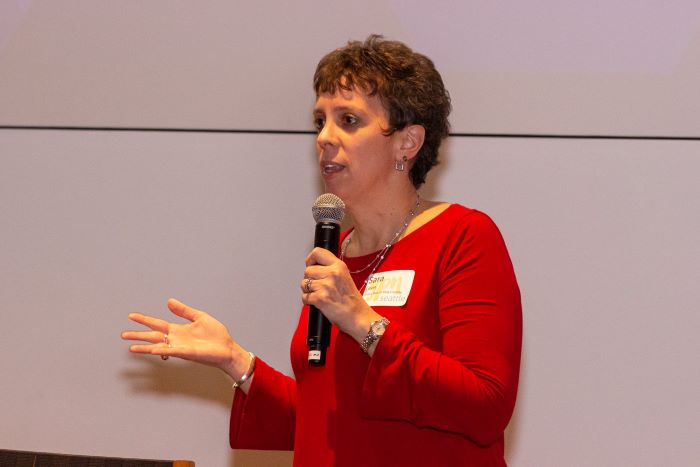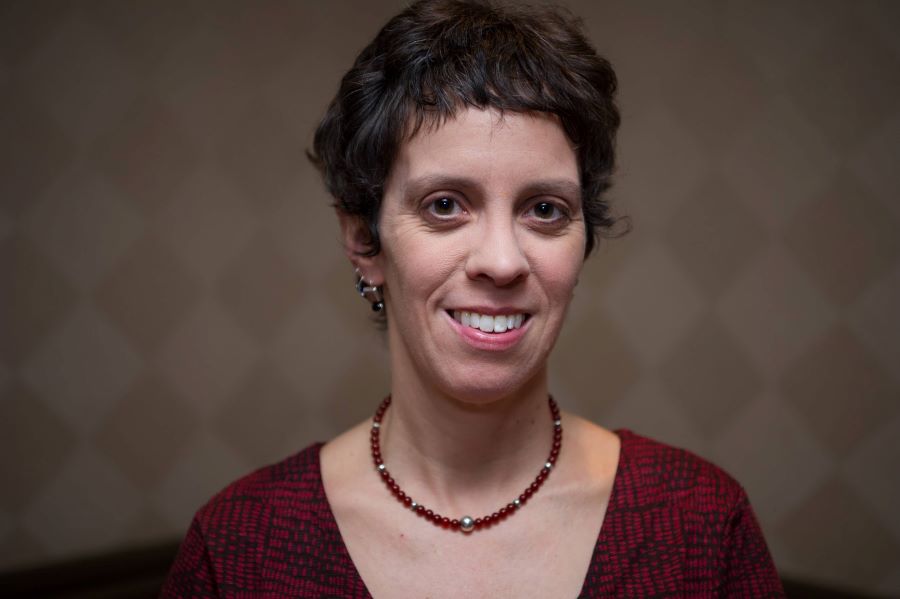Onward: United Way’s Sara Levin
After 10 years of dedicated service, United Way of King County chief impact officer, Sara Levin, is saying farewell this week. Levin, who came to United Way after more than a dozen years at the City of Seattle, has been at the helm as the organization has become more intentional about both racial justice, community outreach and public policy advocacy, all while providing resources to help change people’s lives.
Levin recently spoke with United Way about her ten-year tenure and what lies ahead.
United Way of King County: Why have you decided to leave at this time?
Sara Levin: I’ve had an incredible 10-year run at United Way of King County, and I am so proud of the impact I have had, the team that I have worked with, and the evolution that I have both led and been a part of in terms of how United Way shows up in the community and how deep we go into racial equity. Like so many people, the challenges and the intensity of living through the pandemic, coupled with being at the point I am in my career, I did some hard reflecting and I decided it was time to do something else. I want to take everything I’ve learned and everything I have had the privilege to be part of in the last ten years and apply it in a different arena.
United Way of King County: Do you plan to stay in philanthropy or community impact?
Sara Levin: I am going to be launching a consulting practice that focuses on supporting nonprofits and the public sector in areas such as board governance, strategic planning, facilitation needs and organizational development. That will be a big piece of what I do. The second piece, which I’ve already started, is that I’m dipping my toe into teaching. I have started teaching the capstone project at the Evans School of Public Policy and Governance at the University of Washington. I’m spending six months doing classroom instruction and supporting four teams of students doing their capstone project at the MPA program. That has been a dream of mine, to break into the teaching world at my alma mater.
United Way of King County: Can you take us back to when you first landed the job at United Way—where were you, why did you apply and what were your impressions of the organization?

Sara Levin: Move back ten years ago: I had a fantastic 13-year career in the public sector. I worked for the City of Seattle in the human services department. I loved working for the City and being in the public sector. I really considered myself, and still do, a connector. When I was in the public sector, I was connecting the public to information and access to services that the human services department funded or provided. I was a go-to person in terms of helping people understand city policy and political processes and loved the role of helping people navigate bureaucracy.
The city’s human services department at the time really focused on many of the same issues that United Way focuses on—education, poverty and ending homelessness. [United Way] does it from the philanthropic sector. Coming to United Way, I was really excited to take to the philanthropic sector my expertise in knowing communities and connecting people with what they need.
United Way of King County: At the time you were leaving government and entering philanthropy, what were the hot topics in the city?
Sara Levin: I would say, unfortunately, a lot of the same things that drive our conversations today. Homelessness was a huge issue. We were eight years into the 10-year plan to end homelessness at United Way. Transportation was a big issue; that’s not something that United Way dealt with but it certainly impacted the people we served because our light rail system was 10 years younger and less developed. Poverty and inequity were on the rise, and we were certainly a region that was dealing with gentrification and rising housing prices—all the things we are dealing with today. Ten years ago, we in philanthropy didn’t have the language and the vision and mandate that we have now about racial justice and racial equity.
When I came from the City, I had a racial equity and racial justice focus to what I was doing at the human services department, and the City had a racial justice initiative that started in the early 2000s. I came to United Way and racial justice and racial equity was a big piece of what the community services team did, but we did not as an organization have the same kind of urgency and mandate as we do as an organization now.
United Way of King County: When did that begin to take shape?
Sara Levin: In my early years at United Way, we spent a lot of time in the community services team focused on the fact that—whether it was homelessness, education or poverty—those who were being inequitably impacted were people of color. We did a lot of measuring of disproportionality. What we hadn’t done, as an organization, was to say that we’re going to take on racial justice and focus on racial equity. In 2017, the board created a task force to make recommendations as to how the organization as a whole could take on racial equity work. We recognized that the program side was ahead of the organization, but there was a call from some of the board and some staff members to do more as an organization.
I helped staff that task force that brought recommendations to the board, which it approved unanimously; that started moving us down the path of what the organization as a whole was doing about racial equity. That was accelerated in 2020 with the murder of George Floyd.
I am fundamentally proud to be part of the evolution of United Way to focus on support for and partnership with BIPOC-led and community of color-led organizations, recognizing that they are closest to the work and the communities they serve are those most disproportionately impacted.
Sara Levin, former United Way of King County chief impact officer
United Way of King County: What is some of the work at United Way you are proudest of?
Sara Levin: I am fundamentally proud to be part of the evolution of United Way to focus on support for and partnership with BIPOC-led and community of color-led organizations, recognizing that they are closest to the work and the communities they serve are those most disproportionately impacted. United Way over the last several years has made a fundamental shift in terms of funding, time spent, and resources to those organizations rooted in and working with communities of color.
And I am really proud that we as an organization now believe in, and we are investing time and money in, systems change more visibly than we were. If we don’t address the inequitable systems that drive homelessness, poverty and education inequities, we’ll never have a racially just community.


Comments